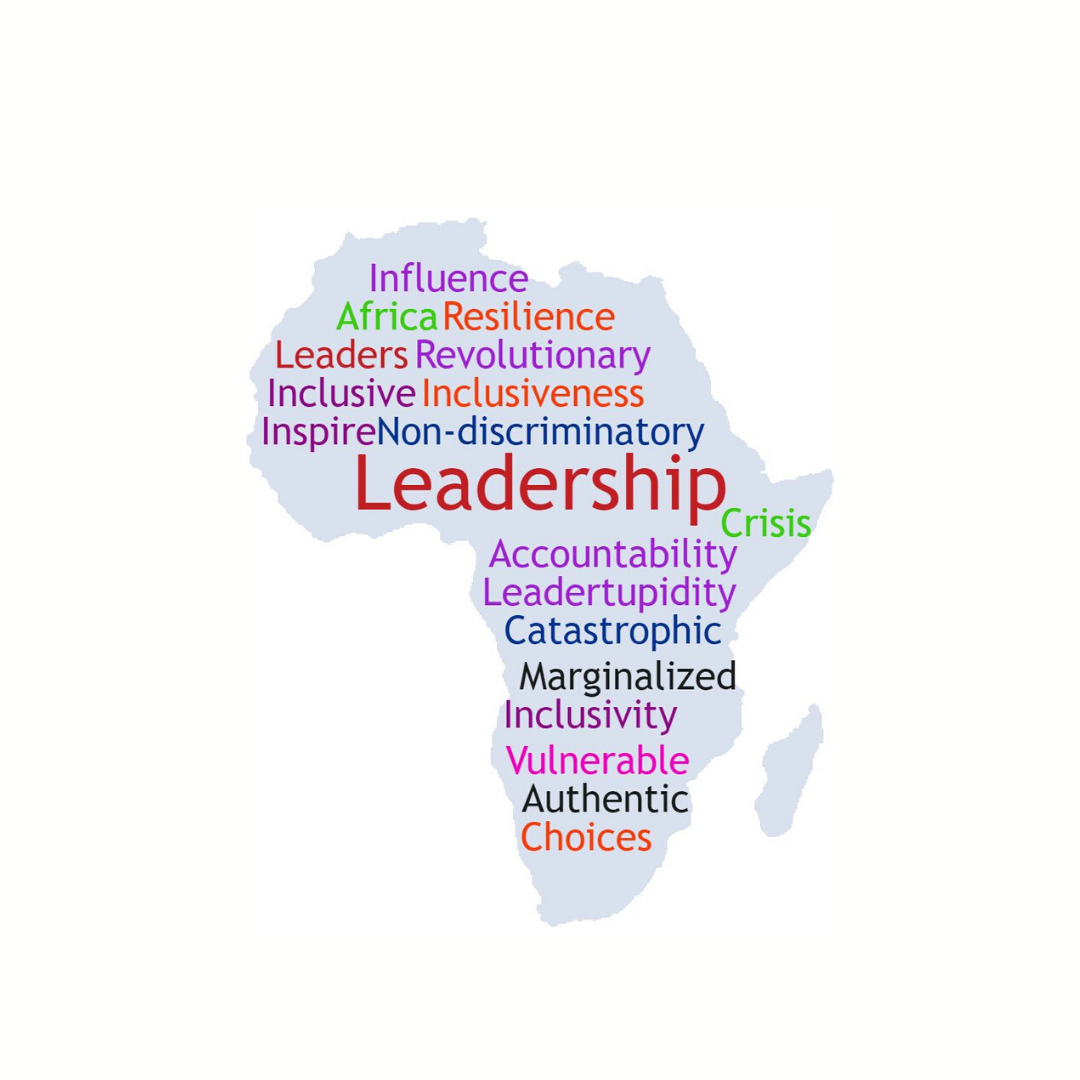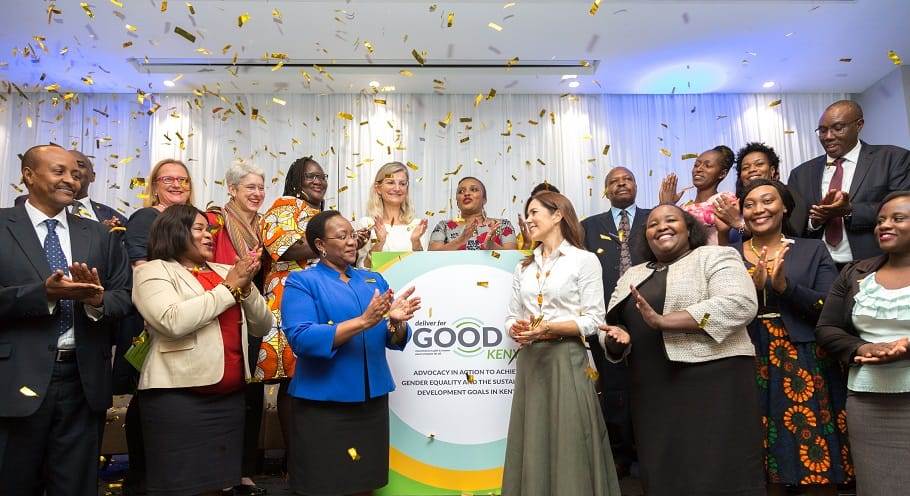Of photos of African women on the dollar & women’s economic participation
In this 21st Century, we have lived to see women walk in space, fly aero planes, operate mean war machines and discover cures for globally destabilizing diseases.
In Africa, the cradle for human kind, we have seen women fight to their graves for a motherland that hardly recognizes their efforts; women holding half the sky in conflict situations that can tear a heart into shreds and we have seen women working bare knuckles to feed generations from absolute scratch.
While women continue to be maligned and side-lined, those who have achieved are hardly ever recognized…not nationally, not regionally and hardly ever on the currency of any African country!
Is it not concerning that of all the 195 countries of the world, only 12 once have or at least feature the faces on women in their currency? Of these twelve countries, none of them are from Africa!
To dissect the trail of inequality in global and regional economic dynamics is a painful journey of gender discrimination and violation. Despite the vast contributions by women to the economic train across the region, women, especially those in Africa have swallowed the bitter-pill of inequality at the economic platform in ways that can hardly be fully comprehended. And while inequality is so widespread so are the gaps that speak loudly of gender bias and discrimination.
In a recent desk study commissioned by the African Women’s Communications and Development Network, FEMNET, despite Africa having largely outgrown its donor dependency, the continent faces a much bigger and more complicated economic dilemma.
The report, Engendering Illicit Financial Flows Discourse & Strengthening Women Participation 2016 paints a gloomy picture of Economic vandalism and financial meltdown that is slowly pushing Africa back to its knees.
Illegal Financial Flows, capped by illegal taxation, tax evasions and human trafficking amongst others are strangling the economic progression of most African Countries. What’s more? The biggest percentage suffering the backlash of the illicit financial flows are the most marginalized of communities especially women.
And so Africa persistently bleeds through illicit financial flows and its biggest sufferers are women.
Statistics are depressing to say the least. Take an issue like taxation and equal pay to bridge the gender gap for instance. A closer look at gender and taxation reveals gender inequalities at work, inequalities in access to and control over economic resources and asset ownership.
A closer look at gender and taxation clearly reveals that taxation is not gender-neutral.
Most tax systems consist of direct taxes on income and wealth; indirect taxes on consumption; property taxes; trade taxes and wealth and inheritance taxes.
In most African countries, direct tax accounts account for only a quarter of tax accounts while indirect taxes account for 2/3 of tax revenue.
Gender biases in tax systems are often a reflection of structural sources of gender inequalities in markets, households and state institutions. Women are mostly in informal sector employment and frequently earn less than men.
Within households, women carry a disproportionate amount of unpaid care work and domestic work and are often responsible for purchasing consumer goods needed in the household. Very few women make public policies. Still, women contribute so much more than can be collectively consolidated and this “much more” is hardly ever remunerated and sadly, neither is it reflected on the dollar!
FEMNET and other partners are calling are advocating for a gender-just tax system. Gender-aware tax justice advocacy revolves around calls for tax reforms of aspects of personal income tax aimed at eliminating explicit and implicit gender biases and that are neither pro-poor nor engendered.
Gender justice advocates have argued that personal income tax systems including the structure of rates, exemptions, deductions, allowances and credits could be designed to actively promote an equal sharing of both paid and unpaid work between women and men as well as eliminate incentives for the perpetuation of gender inequality. There is also urgent need to eliminate explicit bias in personal income tax codes and legislation.
It is for this reason that FEMNET is clear on the following recommendations to bridge the gender gap;-
- Replace joint filing with individual filing as has happened in Kenya
- Lowering tax rates, or providing tax relief on female labor income.
- Recognition of care work as an implicit tax and redistributing market and unpaid work between women and men
- Zero-rating or reduced rates for the basket of basic consumption goods for value-added taxes
These types of reduction in taxes on basic necessitates would increase the disposable income of poor women and increase their bargaining power within households.
How then is all these related to faces of women on African currencies you may ask? Well, it is simple. All issues Economy and all issues Illicit Financial Flows have the bottom-line of currencies that drive economies. Women must be at the center of these currencies to ensure they are never overlooked!
This week, women from across the globe converge in New York on the 61st session on the Commission on the Status of Women (CSW) to take stalk of global gender quality aspirations and interrogate just how much the world has engrained gender equality.
This year’s theme; Women’s Economic empowerment in the changing world of work is apt and spot on for Africa and the world at large to seriously re-think the economic arithmetic that still undermine and violate women’s rights. The gaps and loopholes of gender inequality within tax injustices and macro-economics are staggering.
This is why to begin with, Africa needs to re-think its approaches to the economic arithmetic and for equalities sake, first engender the currencies and let women share the limelight on the place that matters.
Related Tags
Related Posts
#COVID-19: Of Leadership vs ‘Leadertupidity’
The COVID-19 pandemic is a menace posing a threat to everyone, in every society. As of 2nd April
Learn MoreFEMNET 2018 Highlights
Dear Members, Partners & Friends, Happy & Spectacular 2019! I’m excited and truly grateful for your unwavering support
Learn More







